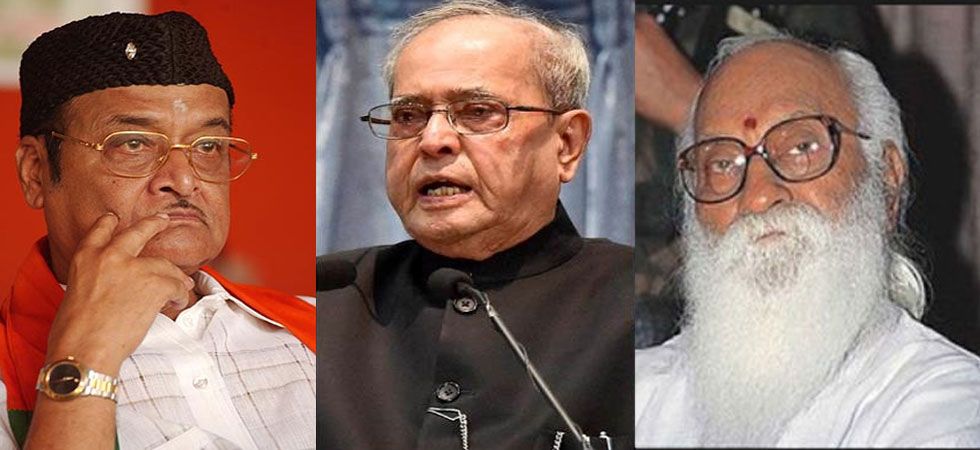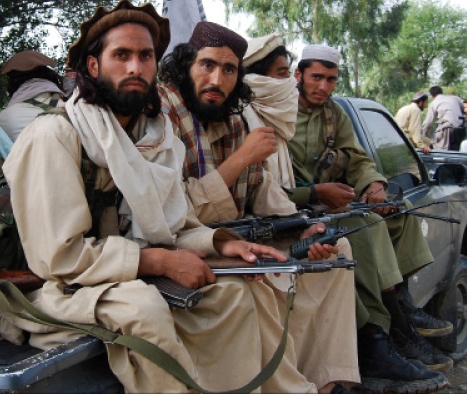Bharat Ratna Awards have been a source of controversy and are often considered to be politically motivated. The politicization of the Bharat Ratna surely needs to be seen beyond appeasement.
Kavya Thomas | The New Leam

[dropcap]E[/dropcap]ach year the announcement of the names of the awardees for India’s highest civilian award the Bharat Ratna has managed to be surrounded in a controversy related to it being politically motivated. The election year 2019 in the nation and therefore it came without a surprise that the awards that were given this year too were seen as being politically motivated. The question that is being raised is whether the choice of the awardees is a way of appeasing the electorate by conferring the award on certain chosen people. What ought to be remembered in this regard is the fact that the allegation of this award being politically motivated does not form a new debate but has rather being going on for quite a while now.
The announcement of the three latest Bharat Ratna recipients- the former President of the nation Pranab Mukherjee, the late legendary singer Bhupen Hazarika and late social activist Nanaji Deshmukh- have once again started the debate about the people who are chosen for this award and the legitimacy of its announcement. While there are many who have critiqued the choice there are those who have come up with suggestions for alternatives. If we were to look at the controversy surrounding the awards this year, one would find that the allegations being imposed are that the BJP government has chosen the awardees to appease the people of different states and become in sync with voters of different communities. The award given to former President of India Pranab Mukherjee is understood to be a move to impress Bengali voters and has been linked to his visit to the RSS Headquarters in Nagpur last year. The selection of Hazarika is seen to be a move to impress the voters from Assam, and neutralise the sentiments of hatred raised during the Citizenship Amendment Bill.
Bharat Ratna: The Bone of Contention
The debates circulating around the Bharat Ratna are not new and each political regime has been criticized for using it as a mechanism for pleasing voters. Recall the fact that in 2014, the Bharat Ratna for former Prime Minister Atal Bihari Vajpayee and freedom fighter Madan Mohan Malviya invited similar criticism. While Vajpayee was the first leader from the Right Wing to win the award, the controversial name of Malviya became a theme for criticism because Modi had promised about the award during the 2014 general election. In 2013 when the Congress government announced the award for Sachin Tendulkar and scientist CNR Rao, the BJP was alleging that the Congress was neglecting the contributions that were made by Vajpayee to the nation.
Alive or Posthumous: When Shall One Get the Award?
The nation’s highest civilian award has been becoming highly politicized and it is being seen as a tool used by each political party to appease the electorate. Questions have also been raised about conferring the award to people who are dead, many decades after they made their contributions to a particular field. The giving of the award to Sardar Patel forty years after his death or the fact that former Prime Minister Jawaharlal Nehru had got it before him has not been unnoticed. Moreover Bhimrao Ambedkar got the award in 1990, almost thirty-five years after his death. Moreover the giving of the highest civilian award to Indira Gandhi and Rajeev Gandhi after their deaths also became controversial and was seen to be politically motivated.
Muslim- Adivasi- Dalit: Are They Excluded from the Award?
Asaduddin Owaisi (AIMIM) on Monday asked a very significant question when he said that India’s marginalised sections like the Dalits, Adivasis and the Muslims have seldom been represented as far as conferring these awards is concerned. He also alleged that the conferring of the award on Baba Saheb Ambedkar was given out of necessity but not out of political will. Many have condemned the controversial ideas that Owaisi has brought forward.
The Shiv Sena reiterated the claims and said that the Bharat Ratna being given to Congress veteran Pranab Mukherjee was an insult to the legacy of Savarkar. The Congress government had insulted Savarkar according to him but the BJP chose to honour the proponents of that party itself. The party expressed discontentment because it argued that neither has the party in the Centre built the Ram temple and nor has it awarded Savarkar and this is shameful.
Saint in Search of Award
While the controversy around the Bharat Ratna has brought out a range of issues that have been put forward as valid criticism of its increased politicization, Yoga guru Baba Ramdev has brought out a new set of demands. While leaders like Owaisi asked why the marginalised have seldom found representation in the awards and the MNS has asked why a Congress leader should be given the award- the Yoga guru asks why no Hindu saint has been given the award.
The question raised by the Yoga guru was why in the last seventy years no Hindu seer has been conferred with the award while the ‘Christian Mother Teresa’ has won the award. He expressed disillusionment as the award was given to a Christian seer but the contributions of Hindu saints were being ignored.
India’s ‘Ratnas’: Our Unsung Heroes
The controversial conferring of the Bharat Ratna award as a political move to appease the electorate has been continuing for quite a while now and it certainly does raise important questions about how many committed, hardworking and dedicated people are not even considered for the award because of political reasons. Does the award need to be given only to those who have been in the public eye or should it also be given to the teachers, doctors, writers, journalists, artists, social activists etc. who have given their lives to serving the nation silently?
The award shall encourage those who have never been hungry for money or power but served the nation with grace rather than being utilised to serve a political motive. While we do need to think about the political motives, the politics of representation that goes behind the award and whether they can be made more representative what we also very importantly need to think about is whether the awards can really find the ‘ratnas’(gems) that work in remote and silent corners of the country and make it what it is through their service and dedication- can it truly be representative of its people?
The culture of awards does not compel us to ask why an old, dedicated teacher who cycles five miles to reach a dilapidated school in rural Jharkhand to teach a bunch of tribal children, a doctor who has never once thought about his own life and healed the impoverished in Rohingya camps, a journalist who has passionately reported about the plight of Indian women in a culture of dowry deaths and awakened people in the vernacular mediums or an artist who has taken his theater form to the transgender people and cultivated a sense of new life in them never chosen for Bharat Ratna but also empowers us to believe that there are many such people in all India’s states who work not for awards but their existence itself becomes an award for the society.
India needs to celebrate her ‘real gems’ beyond the politics of appeasement.














